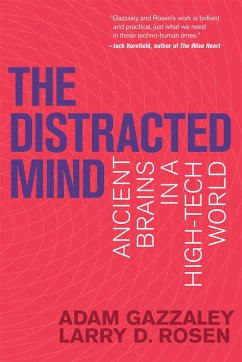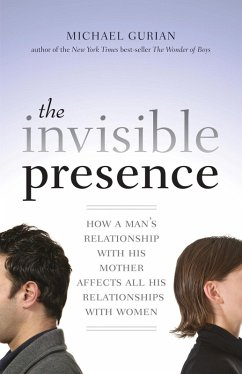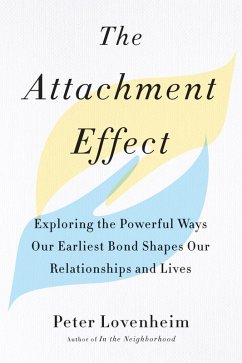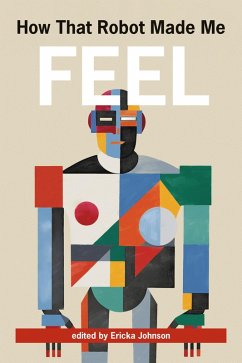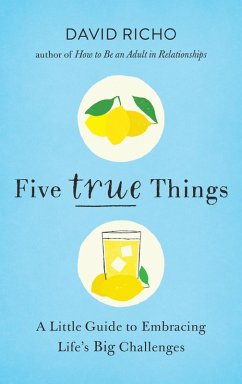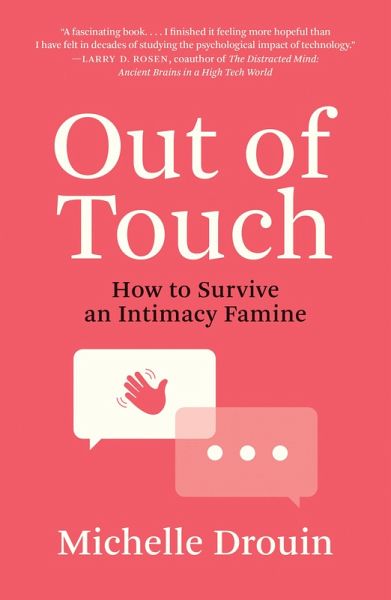
Out of Touch (eBook, ePUB)
How to Survive an Intimacy Famine
Versandkostenfrei!
Sofort per Download lieferbar
11,95 €
inkl. MwSt.
Weitere Ausgaben:

PAYBACK Punkte
6 °P sammeln!
A behavioral scientist explores love, belongingness, and fulfillment, focusing on how modern technology can both help and hinder our need to connect. A Next Big Idea Club nominee. Millions of people around the world are not getting the physical, emotional, and intellectual intimacy they crave. Through the wonders of modern technology, we are connecting with more people more often than ever before, but are these connections what we long for? Pandemic isolation has made us even more alone. In Out of Touch, Professor of Psychology Michelle Drouin investigates what she calls our intimacy famine, e...
A behavioral scientist explores love, belongingness, and fulfillment, focusing on how modern technology can both help and hinder our need to connect. A Next Big Idea Club nominee. Millions of people around the world are not getting the physical, emotional, and intellectual intimacy they crave. Through the wonders of modern technology, we are connecting with more people more often than ever before, but are these connections what we long for? Pandemic isolation has made us even more alone. In Out of Touch, Professor of Psychology Michelle Drouin investigates what she calls our intimacy famine, exploring love, belongingness, and fulfillment and considering why relationships carried out on technological platforms may leave us starving for physical connection. Drouin puts it this way: when most of our interactions are through social media, we are taking tiny hits of dopamine rather than the huge shots of oxytocin that an intimate in-person relationship would provide. Drouin explains that intimacy is not just sex-although of course sex is an important part of intimacy. But how important? Drouin reports on surveys that millennials (perhaps distracted by constant Tinder-swiping) have less sex than previous generations. She discusses pandemic puppies, professional cuddlers, the importance of touch, "desire discrepancy" in marriage, and the value of friendships. Online dating, she suggests, might give users too many options; and the internet facilitates "infidelity-related behaviors." Some technological advances will help us develop and maintain intimate relationships-our phones, for example, can be bridges to emotional support. Some, on the other hand, might leave us out of touch. Drouin explores both of these possibilities.
Dieser Download kann aus rechtlichen Gründen nur mit Rechnungsadresse in A, B, BG, CY, CZ, D, DK, EW, E, FIN, F, GR, HR, H, IRL, I, LT, L, LR, M, NL, PL, P, R, S, SLO, SK ausgeliefert werden.




